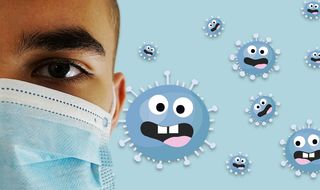Sleep
Sleep, Cytokines, and Immunity
Sleeping well is a key to staying healthy.
Posted May 11, 2020 Reviewed by Lybi Ma
We have all heard the common wisdom that when we get cold or flu, recovery is helped by drinking plenty of liquids and rest. It turns out that the underlying causes of benefits of sleep for getting better are well known based on scientific research. Among the restorative functions that occur during sleep, the immune system releases cytokines, proteins that are the body’s natural defense for fighting infections. What is less well-known is that sleeping poorly results in more susceptibility to infection, and likewise reduces the efficacy of vaccinations.
A large body of research shows that when sleep is experimentally shortened by having volunteers restrict their sleep duration, the presence of inflammatory markers in their blood rises and numbers of T helper cells that secrete cytokines and natural killer cells decrease. These changes have been observed with only one night of sleep deprivation. In one study, volunteers recorded their sleep duration and sleep efficiency (per cent of time in bed actually asleep – an index of sleep quality) for 14 days and then were quarantined for 14 days after being exposed to a rhinovirus – a common cold. Persons who slept seven hours or less were three times more likely to become infected than those who slept eight hours or more. The same relation was found for sleep efficiency. Persons with higher quality sleep were less likely to get the cold. Because how long or well people sleep is partly determined by genetics, it is often difficult to determine how different behavioral and environmental factors behaviors relate to different immune responses in individuals. An important study published in 2017 used identical twins as participants to compare their sleep and immune system functioning. Pairs of twins who had different sleep patterns – one sleeping longer and better than the other – showed differences in their immune systems. Poorer sleep was associated with depressed immune responses to infections.
During the current coronavirus pandemic, there are many restrictions placed on what we can safely do. Ways of remaining healthy have rarely been such a central concern. We have lost control of important aspects of our lives. On the other hand, more people than ever have increased control over sleep, which is vital to well-being. The opportunity is there for many of us to sleep longer than usual. Those whose sleep habits have improved to attain more regular, sufficient sleep will have reduced their vulnerability to infections, while those who are sleeping more poorly for a variety of reasons such as stress and worry may have increased vulnerability.

References
Cohen, S. et al. (2009). Sleep habits and susceptibility to the common cold. Archives of Internal Medicine, 169, 62-67.
Majde, J. A., & Krueger, J. M. (2005). Links between the innate immune system and sleep. Journal of Allergy and Clinical Immunology, 116(6), 1188-1198.
Spiegel, J.F. et al. Sheridan, E. Van Cauter (2002). Effect of sleep deprivation on responses to immunization. JAMA, 288, 471-1472.
Watson, N.F. et al. (2017). Transcriptional signatures of sleep duration discordance in monozygotic twins. Sleep, 40, zsw019


